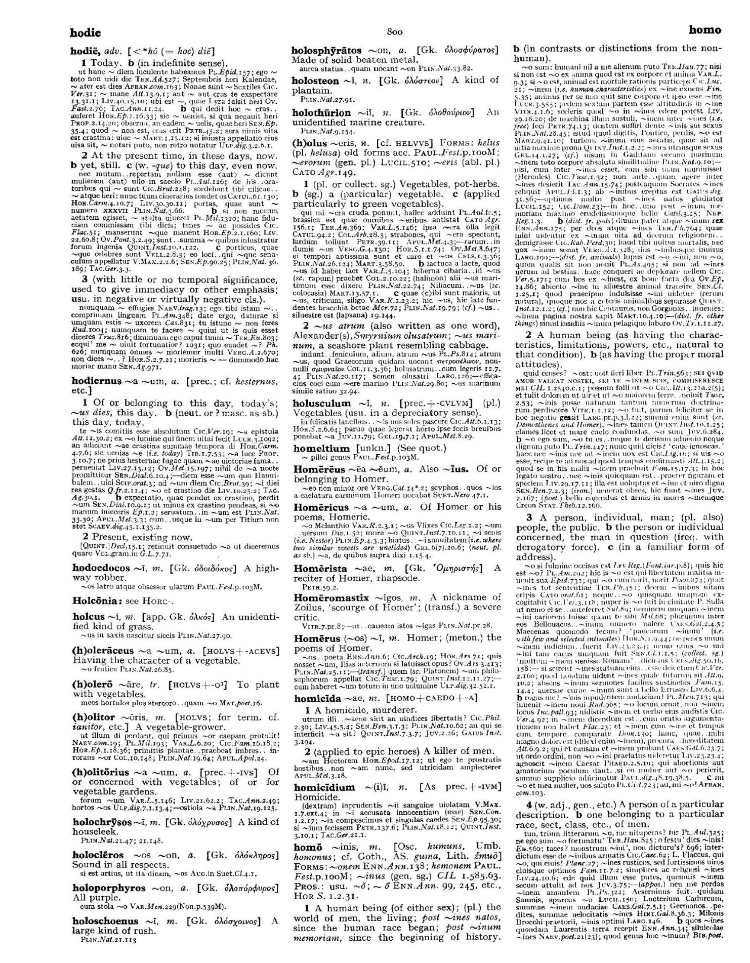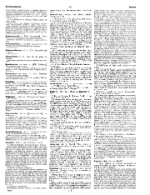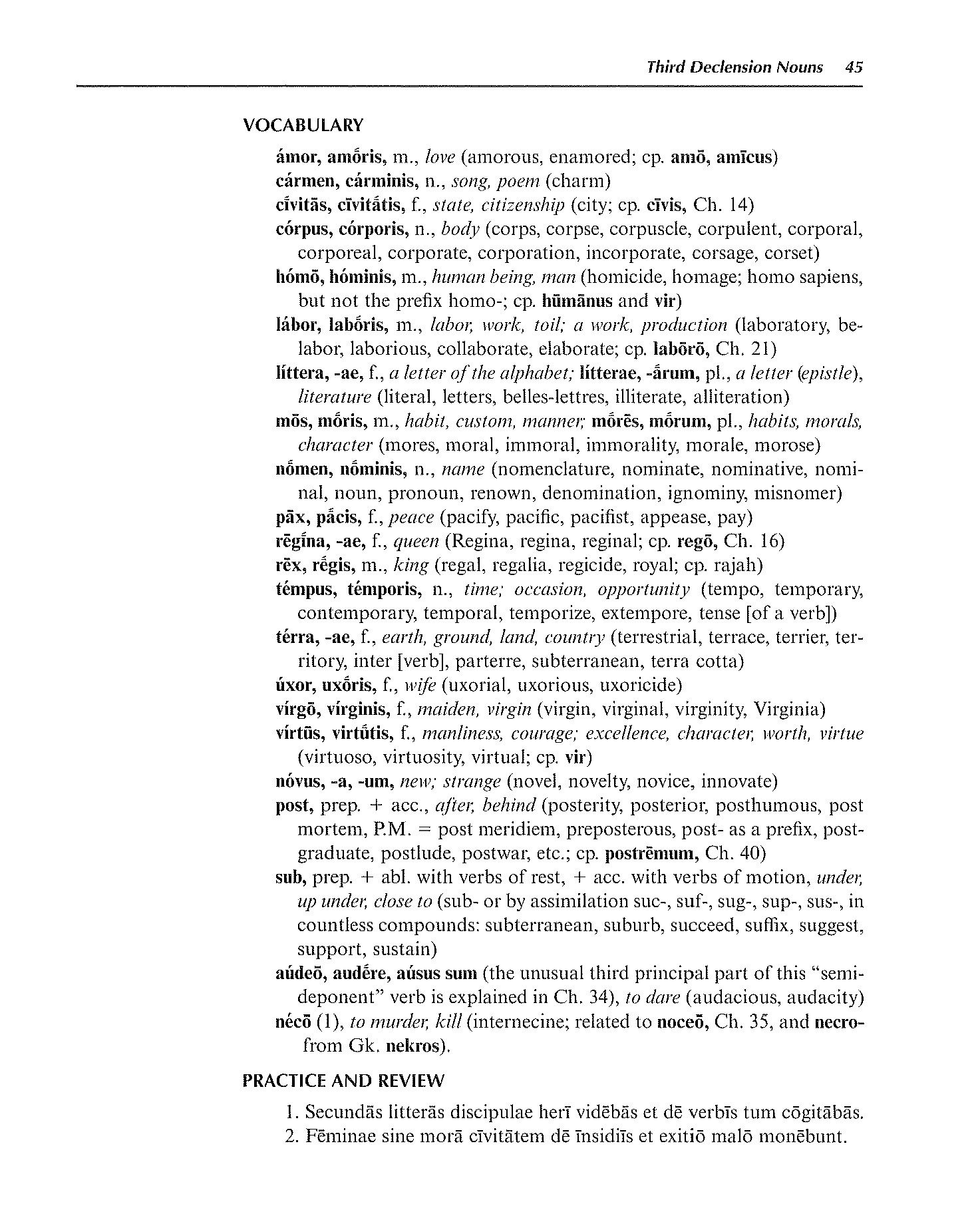
page_listing.tpl
page_subListingDetails.tpl
sub_listingDetails_style1.tpl
sub_listingDetails.title.tpl
homō human being
homō is a Latin Noun that primarily means human being.
Definitions for homō
Wheelock's Latin
Noun
- 1
human being, man
English derivatives:
homicide homage homo sapiens but not the prefix homo-
Oxford Latin Dictionary
Noun
- 1
A human being (of either sex); (pl.) the world of men, the living.
- 2
A human being (as having the characteristics, limitations, powers, etc., natural to that condition). (b) (as having the proper moral attitudes).
- 3
A person, individual, man; (pl. also) people, the public. (b) the person or individual concerned, the man in question (freq. with derogatory force). (c) (in familiar form of address).
Sentences with homō
Latin to English
Propter īnsidiās enim ūnīus hominis haec cīvitās nōn valēbat.Compare In fact, on account of the treachery of one man this state was not strong.
Abeat ā patriā iste homō malus quī odium omnium cīvium bonōrum passus est.Compare Let that evil man depart from his country—he who has endured the hatred of all good citizens.
Homō dē quō dīcēbās est amīcus cārus.Compare The man about whom you were speaking is a dear friend.
Sine magnō labōre homō nihil habēbit.Compare Without great labor the man will have nothing.
Accēpērunt id triumphāle congiārium in colōnīs hominum circiter centum et vīgint millia. (Res gestae divi Augusti 15)Compare At the time of my triumph about 120,000 men in the colonies received this donation.
Homo Sum: humani nihil a me alienum puto.Compare I am human: Nothing human is alien to me.
Eō ipsō tempore ad iānuam caupōnae appāruit homō obēsus.Compare At that very moment a fat man appeared at the door of the inn.
Vult homo non esse concupiscentias ... Velimus, nolimus, habemus illa: velimus, nolimus, titillant, blandiuntur, stimulant ... Premuntur nondum exstinguuntur.Compare Man does not want to have desires ... Whether we like it or not, we have them; whether we like it or not they tickle us, caress us, excite us... They press upon us until they are extinguished.
Declension table for homō
Cactus2000
| Singular | Plural | |
| Nom. | homō | hominēs |
| Gen. | hominis | hominum |
| Dat. | hominī | hominibus |
| Acc. | hominem | hominēs |
| Abl. | homine | hominibus |
Data sources
Notes
- Definitions
- Frederick M. Wheelock, Wheelock's Latin, 6th ed., rev. Richard A. LaFleur (New York, NY: HarperCollins Publishers, 2005): 45.
- P. G. W. Glare, Oxford Latin Dictionary, Vols. 1-8 (Oxford: Clarendon Press, 1982): 800.
- Word frequencies
- Christopher Francese, "Latin Core Vocabulary," Dickinson College Commentaries, last modified 2014, http://dcc.dickinson.edu.
- Paul B. Diederich, The Frequency of Latin Words and Their Endings, PhD diss., (Columbia University, 1939).
- Louis Delatte, Suzanne Govaerts, Joseph Denooz, and Etienne Evrard, Dictionnaire fréquentiel et index inverse de la langue latine [Frequency Dictionary and Inverse Index of the Latin Language] (Liège, Belgium: Laboratoire d'analyse statistique des langues anciennes de l'Université de Liège [L.A.S.L.A.], 1981): 119.
Bibliography
Allen, Joseph H. Allen and Greenough's New Latin Grammar for Schools and Colleges: Founded on Comparative Grammar. Edited by James B. Greenough, George L. Kittredge, Albert A. Howard, and Benjamin L. D'Ooge. Boston, MA: Ginn & Company, 1903.
Crystal, David. A Dictionary of Linguistics and Phonetics. 6th ed. Oxford, UK: Blackwell Publishing, 2008.
Delatte, Louis, Suzanne Govaerts, Joseph Denooz, and Etienne Evrard. Dictionnaire fréquentiel et index inverse de la langue latine [Frequency Dictionary and Inverse Index of the Latin Language]. Liège, Belgium: Laboratoire d'analyse statistique des langues anciennes de l'Université de Liège (L.A.S.L.A.), 1981.
Diederich, Paul B. The Frequency of Latin Words and Their Endings. PhD diss., Columbia University, 1939.
Francese, Christopher. "Latin Core Vocabulary." Dickinson College Commentaries. Last modified 2014. http://dcc.dickinson.edu/latin-vocabulary-list.
Gildersleeve, Basil L., and Gonzales Lodge. Gildersleeve's Latin Grammar: Third Edition, Revised, and Enlarged. 3rd ed. London, England: Macmillan and Co., 1903.
Glare, Peter G.W. Oxford Latin Dictionary. Vols. 1-8. Oxford, England: Clarendon Press, 1982.
Krüger, Bernd. "Latin Conjugation Tables." Cactus2000. Accessed May 5, 2023. https://latin.cactus2000.de/index.en.php.
Pierson, Nick. "Sound of Text." Accessed October 26, 2019. https://soundoftext.com.
Wheelock, Frederick M. Wheelock's Latin. 6th ed. Revised by Richard A. LaFleur. New York, NY: HarperCollins Publishers, 2005.
Wiktionary Contributors. "Victionarium." Wikimedia Foundation, Inc. Updated March 18, 2019. https://la.wiktionary.org/wiki/Victionarium:Pagina_prima.
Citation
Chicago (17th ed.)
Allo Contributors. "homō, hominis (n.) - Latin Word Definition." Allo Latin Dictionary. Last modified . Accessed February 20, 2026. http://ancientlanguages.org/latin/dictionary/homo-hominis.
Entry created on . Last updated on .








